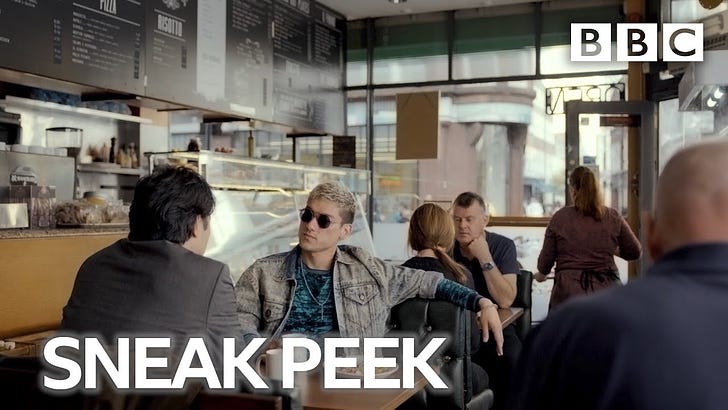With so much of the country suffering through miserable weather, and no football (the Pro Bowl does not count) this weekend, I thought I might suggest some streaming TV to watch. I've got broad tastes, but my favorite sub-genre is Quaint Location Crime Fiction (QLCF), a concept introduced in a meta-episode of the Newfoundland-based Republic of Doyle. I still recommend the six seasons of this antic father-son private investigator team, though current U.S. streaming rights are up in the air: some seasons are on Acorn TV, others may be elsewhere. Canadian subscribers either know about Doyle, or probably have access to CBC legacy programming unavailable in the U.S. Check your streaming device for more information.
Here are some more accessible shows that have given me great pleasure over the last few years that have not gotten the attention they have deserved. Be aware that I watch all TV aside from sports and news with closed captioning (CC). As a result, I have also come to favor program…
Keep reading with a 7-day free trial
Subscribe to Critical Conditions by Wayne Robins to keep reading this post and get 7 days of free access to the full post archives.



